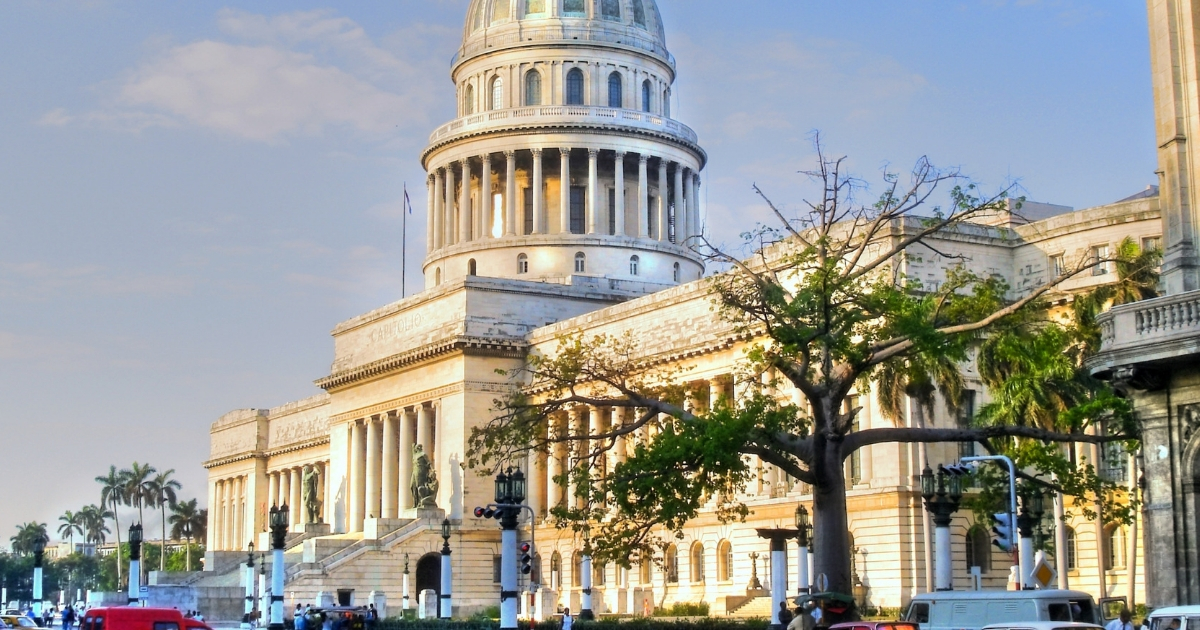
Trump Admin Considering Dramatic Change of Cuba Policy
The Trump administration is weighing what could become the most serious tightening of the U.S. trade embargo on Cuba in more than two decades — a move that could unleash a flurry of lawsuits against foreign companies that have invested on the island.
A 1996 law known as the Helms-Burton Act gives Americans the right to sue companies profiting from properties confiscated by Cuba’s government after its 1959 socialist revolution. That potentially could allow hundreds of lawsuits against corporations around the world, from Spanish companies that run Cuban hotels to Chinese and Turkish firms renovating Cuban ports.
But every U.S. president since Bill Clinton has suspended the key clause, known as Title III, because of its potential to alienate U.S. allies and complicate any future American detente with Cuba.
Secretary of State Mike Pompeo on Wednesday appeared to open the possibility that the U.S. government might allow that clause to take effect. He said the administration was suspending Title III again, but only for a month and a half instead of the six-month suspension that has been constantly renewed since 1996.
Pompeo said the administration was conducting a careful review of Title III “in light of the national interests of the United States and efforts to expedite a transition to democracy in Cuba and include factors such as the Cuban regime’s brutal oppression of human rights and fundamental freedoms.”
Both advocates of better U.S.-Cuba relations and opponents of the communist government said Thursday that they expected the Trump administration to allow at least some lawsuits against companies doing business in Cuba when the 45-day review ends. The lawsuits that follow could create a huge obstacle to foreign investment in Cuba — a major escalation of Trump’s relatively cautious approach so far to unwinding President Barack Obama’s historic detente with the island, which began in December 2014.
In a tweet, Florida Sen. Marco Rubio described Pompeo’s statement as “is a strong indication of what comes next. If you are trafficking in stolen property in #Cuba, now would be a good time to get out.”
Todays waiver of Title III of Helms-Burton for only 45 days instead of the customary 180 days & the accompanying warning, is a strong indication of what comes next.
If you are trafficking in stolen property in #Cuba, now would be a good time to get out.
— Marco Rubio (@marcorubio) January 17, 2019
The major American companies doing business in Cuba — AirBnB, airlines and cruise companies — could emerge unscathed because the 1996 law contains exemptions for business related to legal travel to Cuba, said Pedro Freyre, a Miami attorney who represents some of the largest foreign companies in Cuba. Still, litigation against foreign companies would be a serious blow to a centrally planned economy that’s entering its fourth consecutive year of economic stagnation and struggling to attract badly needed foreign investment.
The Cuban government launched waves of confiscations and nationalizations after the 1959 revolution that ended decades of U.S. domination of the island. Vast swathes of the island were taken from U.S. corporations, U.S. citizens and Cubans who worked closely with the U.S. and were placed into state hands.
Many of those properties, from grand hotels to sugar plantations to ports and airports, are now used in joint ventures between the Cuban government and companies, mostly European and Asian, whose governments place no prohibitions on business with Cuba.
“This will have a chilling on anybody who is thinking about doing business,” Freyre said. “It just makes engagement extremely difficult.”
He described the end of Title III suspension as the most serious U.S. measure against the Cuban government since the passage of the original Helms-Burton law.
Cuban Foreign Minister Bruno Rodriguez described the Pompeo announcement as “political blackmail and irresponsible hostility aimed at hardening the blockade on Cuba.”
President Miguel Diaz-Canel said on Twitter that “we vigorously reject this new provocation, meddling, threatening and bullying, in violation of international law.”
Until now, the Trump administration had taken a measured approach to the Obama detente, tightening some rules on travel to Cuba and escalating rhetoric against the island, but mainly leaving Obama’s measures alone.
“If they take this decision they will be moving from a policy of limiting U.S. engagement with Cuba to a policy of very actively trying to disrupt the Cuban economy,” said Phil Peters, a longtime Cuba expert and consultant for U.S. businesses in Cuba.
The Western Journal has reviewed this Associated Press story and may have altered it prior to publication to ensure that it meets our editorial standards.
Truth and Accuracy
We are committed to truth and accuracy in all of our journalism. Read our editorial standards.
Advertise with The Western Journal and reach millions of highly engaged readers, while supporting our work. Advertise Today.












